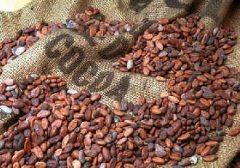Starbucks in China
Since entering the Chinese mainland market in 1999, Starbucks has more than 700 stores in more than 50 cities in China, and plans to have 1500 stores by 2015. To achieve this goal, strengthening the management of Starbucks coffee supply chain has become the first problem.

At present, China's coffee market has changed greatly from that of 10 years ago. If it is said that 10 years ago, most Chinese consumers did not know how to drink coffee, today's Chinese consumers have more choices and picky about coffee. At present, the big international coffee players have basically entered China. Nestle and Maxwell have already entered Yunnan, and Nestl é even carried out intensive cultivation in Yunnan as early as the 1990s; while in the terminal store market, Nestl é, McDonald's, costa coffee and even Chinese players such as China Resources and Hougu Coffee are optimistic about the potential of China's coffee market. You know, China now drinks only 3 cups of coffee per person per year, while Europeans drink an average of 600 cups a year, and even Japan has to reach 200 cups a year, so the market potential is still unlimited.
How does Starbucks strengthen supply chain management in China? The first to bear the brunt is the planting area. At present, Pu'er has planted 600000 mu of coffee, with a production area of 270000 mu and an output of 36500 tons, accounting for more than half of China's total output. Starbucks' intention to set up a coffee grower support center is self-evident.
With the establishment of Starbucks coffee grower support center and coffee processing plant in Yunnan, on the one hand, Starbucks has completed the coverage of the whole industrial chain and consolidated its development in China, on the other hand, it has also brought new opportunities for the development of Yunnan coffee industry. For example, the production cost of the main international coffee producing countries is 12-13.5 yuan / kg, while the current average cost in Yunnan is less than 10 yuan / kg, and the self-planting cost of farmers is 8 yuan / kg, which has the advantage of low planting cost. Local farmers have also achieved better economic benefits. The annual total income of an mu of Mesa tea is less than 2000 yuan, while an mu of coffee can receive about 150,200 kilograms of coffee beans, which can have a net income of 3000,000 yuan according to the current market. According to Starbucks' Coffee and grower Fairness Code, growers' coffee quality assessment scores can be improved and yields per hectare will be increased by 25%.
In a continuous move to strengthen China's local source supply chain management at the same time, Starbucks also continues to deepen the terminal store opening strategy, a two-pronged approach to improve the Chinese market development strategy. "the adjustment from source to terminal store means that Starbucks' supply chain in China-from coffee cultivation to providing customers with a pure cup of Starbucks coffee experience in stores-is of great significance to strengthen Starbucks' leading position in the Chinese coffee industry and Starbucks' continued development in the Chinese market.
Important Notice :
前街咖啡 FrontStreet Coffee has moved to new addredd:
FrontStreet Coffee Address: 315,Donghua East Road,GuangZhou
Tel:020 38364473
- Prev

Fresh coffee and raw beans
Fresh coffee, raw beans, full of vitality. Semi-fresh raw beans, with a little bit of stability in the vitality. Eight months later, the raw beans lost their vitality. Raw beans for more than a year are old and boring.
- Next

Wash coffee and raw beans
Coffee raw beans are the state of coffee beans before they are roasted, and the processing process of coffee raw beans is more troublesome. Today we will talk about how to wash coffee raw beans, that is, the step of washing coffee raw beans.
Related
- Guji coffee producing area of Guji, Ethiopia: Humbela, Shakiso, Wulaga
- What is the most expensive variety of Qiloso in BOP multi-variety group?
- How to store the coffee beans bought home?
- Why are Yemeni coffee beans so rare now?
- Ethiopian Sidamo all Red Fruit Sun Sun Santa Vini Coffee beans
- SOE is mostly sour? What does it mean? Is it a single bean? what's the difference between it and Italian blending?
- Is Italian coffee beans suitable for making hand-brewed coffee?
- How to choose coffee beans when making cold coffee? What kind of coffee beans are suitable for making cold coffee?
- Just entered the pit to make coffee, what kind of coffee beans should be chosen?
- Can only Japan buy real Blue Mountain Coffee? What are authentic Jamaican Blue Mountain coffee beans?

